For legal, USCIS, academics & official documents. Includes signed certificate of accuracy.
For general content & documents. No certificate is provided.
Website/app/E-learning content translation and localization.
Custom solutions for business & law firms with recurring translation needs.

How to Translate Academic Documents such as Diploma, Degree and Transcripts – Complete Guide
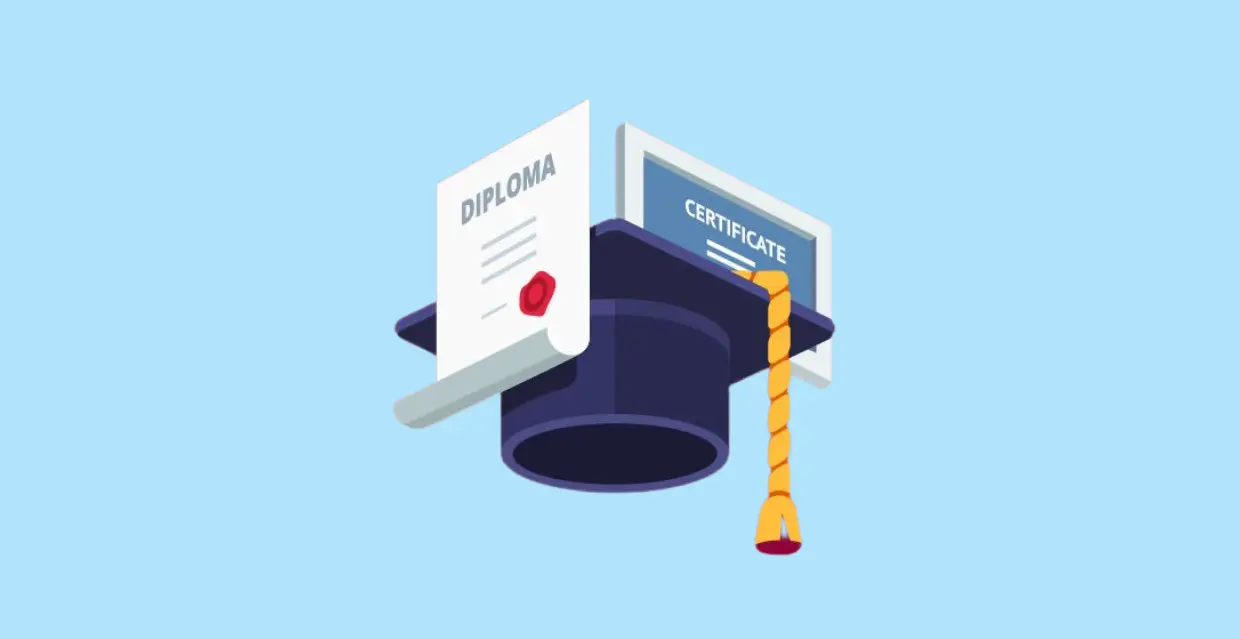
November 14, 2022
16 min. to read
An academic documents translation service converts an individual’s official school records from the original to English or a second language. This type of translation entails a literal word-for-word transcription of the documents or records related to academics.
When international students enroll in a school, college, or university, they must submit copies of their academic translation credits. Original documents in a language other than English need translation by a certified professional .
Aside from academic records, you might also need an academic translation for documents like diplomas or degrees. Anytime you need to verify your academic credentials, you’ll likely need professional academic document translation services like those from Languex .
Let’s take a closer look at what goes into translating academic documents and how you can get the right services for your needs.
Key Takeaways:
- Academic document translation services are essential for anyone who needs to convert their official school records, diplomas, or foreign degrees into English or another language.
- The translation process involves assigning a qualified translator, performing a verbatim translation, proofreading, editing, and quality control to ensure accuracy and satisfaction.
- Certified translations are often required by official institutions, as they come with an official signed certificate verifying the translation’s accuracy and the translator’s qualifications.
- Languex offers certified academic translations, a quality control process, quick turnaround, and affordable pricing to meet the needs of individuals and institutions alike.
Table of Contents:
- What is a foreign degree? a. When do you need your foreign degree translated?
- What is an academic document translation? a. What is the academic translation process?
- Common types of academic translations a. How to translate an academic transcript b. How to translate a high school diploma c. How to translate a diploma or degree d. How to get foreign degree translated?
- Why do individuals need an academic translation service?
- Why do institutions need an academic translation service?
- What are the differences between academic translations for individuals and institutions?
- Differences between degree translation and accreditation
- Special requirements for degree translation
- Why do I need to certify my academic translations ?
- What to consider when hiring an academic translation services company
- Steps needed for an academic translation
- Why individuals and companies choose Languex
- Frequently Asked Questions about academic document translations
- Final thoughts
What is an Academic Document Translation?
An academic document translation can involve just about any sort of academic materials, whether they be an academic certificate translation, a translation of report cards, official transcripts, diplomas, degrees, or something else entirely.
A word-for-word translation of these documents may be needed to help you prove that you’ve received the education you say you have.
Certified translation services like Languex can deliver translated academic materials quickly and reliably so that students and professionals can get the documents they need to pursue their goals.
What is the academic translation process?
Once Languex has received a fully legible digital copy of your academic transcript or another academic record, we assign the most qualified translator for the job to your project.
Not only will this translator be fluent in the language of the original document and English, but they will have been through an extensive vetting process.
The worldwide network of Languex’s expert translators covers over 100+ languages, and every translator is tested for skill and accuracy before joining Languex’s network. No matter your needs, the Languex team is equipped to get you the translation services you need for the low price of $24.50/page.
Once assigned to the job, the translator completes a verbatim translation of the original document. They will not omit or provide additional details, and every word and number is translated precisely. Once the academic translation is complete, a proofreader, editor, and manager check for quality and accuracy.
Next, you will have the chance to review the document for any errors. We’re confident that the outcome will be error-free, but we’ll offer free revisions as needed until you’re 100% satisfied with your translated document.
Common Types of Academic Documents
Essentially any kind of document that’s used in an academic setting can fall under the umbrella of academic translations, including things like:
- Transcripts
- Research papers or reports
- Dissertations
- Case studies
- Lab reports
- Grant proposals
What is a foreign degree translation?
A foreign degree is any official degree that verifies a person’s academic credentials Degrees are usually awarded to those who have completed some sort of post-secondary education, like attending a university.
Foreign degree translation is important for individuals seeking international education or career opportunities.
Translating degrees requires certified translation expertise and an understanding of educational systems and degree structures in both source and target countries. Challenges include addressing differences in degree types, levels and accurately converting credits, course hours, or other evaluation metrics to enable fair assessment of qualifications.
A skilled translator will navigate these nuances and create a visually consistent translation, maintaining the original degree’s structure and layout for easy review and understanding by recipients.
How to translate your foreign degree?
If you’re moving to a new country, applying to a school or university abroad, or applying for a job in another country, you’ll probably need a translated degree or translated academic records.
Most official institutions require an accurate translation of materials like these to confirm that a person is qualified to enter the job or program they’re applying to.
If you need a foreign degree translation, or if you want to learn more, you can get started by visiting our Academic Transcript Translation Services page and place an order through our secure online platform
How to translate an academic transcript
Academic transcript translation is crucial for students and professionals aiming to study or work abroad. As a specialized academic translator, I ensure accurate translations that properly recognize your accomplishments.
Transcripts contain course titles, credit hours, grades, personal details, and institutional information. Translating these requires linguistic proficiency and understanding of the academic systems and grading scales in both source and target countries.
Challenges in transcript translation include subject-specific terminology and accurate grading scale representation. A skilled academic translator will convey course content and maintain the transcript’s integrity while reflecting correct grade equivalents for accurate assessment.
Formatting and presentation are vital, with translated documents needing to be clear, well-structured, and visually similar to the original transcript for easy review and comprehension
Whether for college transcript translation services or any other type of transcript, turn to expert professionals like the Languex team for help.
You’ll need a translation that incorporates all the details, formatting, and content of your original transcript so that you don’t run into any issues later on.
If you need a certified transcript translation, or if you want to learn more, you can get started by visiting our Academic Transcript Translation Services page and place an order through our secure online platform
How to translate a diploma
As a professional translator specializing in academic translation, I understand the importance of accurate and reliable diploma translation . Diplomas hold immense value, representing the culmination of years of hard work, dedication, and academic success. When pursuing opportunities abroad or in a different linguistic environment, having an accurately translated diploma can be the key to opening doors and unlocking your full potential.
Diploma translation requires precision, attention to detail, and a deep understanding of the educational systems and terminologies in both the source and target languages. A qualified translator with expertise in academic translation will ensure that your diploma is translated in a way that accurately reflects your achievements and maintains the integrity of the original document.
One common challenge in diploma translation is the potential variation in educational systems and degree structures between countries. A skilled translator will be aware of these nuances and ensure that your diploma translation accurately conveys the level of your degree and the specific qualifications you have earned.
Additionally, formatting plays a crucial role in diploma translation. This includes the translation of signatures, seals, and other elements that contribute to the diploma’s authenticity. The translated document should resemble the original diploma certificate as closely as possible, maintaining its structure and layout.
For any kind of diploma translation, it’s best to rely on certified diploma translation services like those offered through Languex.
That’s because only certified professionals can produce the kinds of results you’ll likely need: certified or notarized translation that are accurate, 100% complete, and word-for-word.
So, if you’d need a diploma translation, or if you want to learn more, you can get started by visiting our diploma translation services page and place an order through our secure online platform. Let us take care of the hard work for you.
Translating Academic Documents for USCIS
Submitting academic documents such as diplomas, degrees, or transcripts to USCIS requires certified translations that meet specific criteria. Translations must be accurate and complete, accompanied by a signed certificate from the translator, attesting to their proficiency in both languages and the translation’s accuracy.
Following these requirements ensures that USCIS can adequately evaluate your qualifications, streamlining your immigration application and enhancing your chances of success. Please visit our USCIS Certified Translation page or learn more or translate your documents according to USCIS requirements.
Why Do Individuals Need an Academic Translation Service?
An academic translation can help individuals apply to jobs and schools as desired without being limited by the language their academic records are written in.
After all, documents need to be translated to be understood and adequately processed by the institution in question; not all schools and employers have access to resources that help them read in any language.
Choosing professional document translation services can help you avoid errors and delays so that you can get the best possible opportunity for enrollment.
Why Do Institutions Need an Academic Translation Service?
Educational institutions may also require academic translation services for things like student or parent handbooks, school rules and policy manuals, academic papers, journals, and more.
In this case, accurate translations can be necessary to make key information accessible to all students and employees. Otherwise, inconsistencies in expectations and opportunities might occur.
What Are the Differences Between Academic Translations for Individuals and Institutions?
Put simply, individuals and institutions have different translation needs.
Students often look to translate their diplomas or school records, while institutions may need to have longer, more complex materials like manuals or research papers translated for publication and widespread use.
Differences Between Translation and Accreditation
Translation refers to the process of translating the content of an academic document from one language to another.
Its purpose is to help potential employers or academic institutions understand the content of the foreign academic document.
That’s why it’s important to use professional translation services to ensure the accuracy and consistency of the translated document.
Accreditation , on the other hand, refers to the process of evaluating and validating the quality and standards of an educational institution or program.
This process is carried out by specialized accrediting agencies or organizations that assess various aspects of the institution, such as curriculum, faculty qualifications, resources, and learning outcomes.
You can think of it as a sort of credential evaluation for programs and schools. If the institution or program meets the established criteria, it receives accreditation, which signals to students, employers, and other stakeholders that the education provided meets certain standards.
Special Requirements for Academic Document Translation
Not all degree, diploma or transcript translations are created equal. Different circumstances might warrant different needs and additions to your document translations.
For example, you might need a certified degree translation if you’re applying for a job with a country’s government.
A notarized academic translation might be needed if you’re applying to an upper education program or for money for a research grant.
An official translation may be the best move for applying to a foreign university or a scholarship program overseas.
What you need will depend on what you’re using your translated records for.
But no matter what kind of academic translation you need, the Languex team is equipped to help you every step of the way. That’s why over 10,000 satisfied customers choose and trust us as their top translation agency for academic documents and more.
To learn more about special circumstances like these, check out our guide: What Are The Differences Between Standard vs Certified Translation
When do you need to certify your academic translations?
High schools, universities, courts, immigration services, and other government agencies require a certified translation of all school documents and records.
Each certified academic translation comes with an official signed certificate verifying the accuracy of the translation and the translator’s qualifications.
What to Consider When Hiring an Academic Translation Services Company
You’ll need to trust the right professionals to get the best possible results from academic document translation services.
Below are some questions you might ask yourself when selecting an academic translation service like Languex to ensure you don’t waste your money on translators who don’t meet the mark:
- Does the company use human translators?
- Is the translator bilingual, fluent in both languages and do they understand the culture and nuances of the translation?
- Does the company guarantee prompt, on-time delivery?
- Was a firm price for the translation quoted before the work started, and were there no hidden fees?
- Were free revisions and free formatting offered?
- Was there a 100% satisfaction guarantee?
- Does the company have good customer reviews at sites like Trustpilot?
- Does the company have positive testimonials on its website?
Steps Needed for an Academic Translation
Getting a Languex translation for all your documents is simple, easy, and stress-free. We take pride in delivering translations quickly and rely on certified human translators to produce only the best results. The only steps you’ll need to take are as follows:
All our certified academic translations come with a free ink-signed and sealed certified translation certificate as per official requirements. You can even choose our two-day delivery service to receive an original copy of your ink-signed, stamped academic document translation and translation certificate. We’ll also send digital copies to your email for free.
Why Individuals and Companies Choose Languex
Languex employs only the best professional translators to produce documents that meet our top-notch standards.
Much of the translation industry is cluttered with translators who don’t have the skills, experience, and commitment to quality that you’ll find through our team.
We offer all this for a price that can’t be topped; our translation services cost just $24.50/page.
When you trust Languex, you can rest assured you’ll get your documents translated quickly and reliably.
We have successfully translated thousands of academic and other documents across a variety of industries so that we can give you leading services for the best price.
Getting the documents you need takes just a few clicks. Order your translation today or request a free quote to get started and see what makes the Languex difference so unique.
Frequently Asked Questions About Academic Documents Translation
Still have burning questions about academic document translations? We’ve got answers.
Who can translate my foreign degree?
Only professional translators or certified translation services like Languex can translate a foreign degree with the accuracy and precision that’s needed to avoid delays and problems down the road.
How to translate my high school diploma to English?
For the most reliable diploma translation services on the market, look no further than Languex. We’ll have your diploma translated within just 24 hours of order placement, and our translators are equipped to work in English and 100+ other common languages.
How to translate a diploma from Spanish to English?
If you need your diploma translated from Spanish to English or any other language, turn to the Languex team to be paired with the right professional translator for the job.
Our diploma translation services cost just $24.50/page so that you can get the materials you need without breaking the bank.
How do I translate a Spanish birth certificate to English?
You can rely on professional translators who have experience working with Spanish birth certificates and English birth certificates to get the job done. At Languex, our professional translators can translate birth certificates into 100+ languages, including Spanish.
How long does Languex take to translate academic documents?
Languex can produce an academic document translation of any kind within just 24 hours of ordering. We also guarantee our translated documents will be accepted by USCIS or any other official organization that you need to work with.
Do you offer certified translations for academic documents?
Yes, Languex does offer certified academic document translations in over 100 popular languages. We can also provide a notarized translation of academic documents should you need one.
We rely on only the best professional translators and employ a rigorous three-step quality control process to ensure our certified academic translation services are error-free, fast, and reliable.
Count On Languex For Top Academic Document Translations
While there’s no shortage of translation service providers on the market, none of them have the experience and extensive team of expert professionals that Languex has.
If you want academic translation services that are a step above the rest, count on us to get the job done and done right.
With tens of thousands of positive customer reviews on Trustpilot , we’re proud to say that our work speaks for itself.
Our team’s deep understanding of the work we do and why we do it helps us stay committed to quality and precision for a price you can afford.
No matter what, we’re here to help you get the translations you need. Contact us today to get started.
Reviewed By
Select RoleTranslator
Popular posted
What Is A Certified Translation – A Complete Guide
In today’s globalized world, accurate and reliable translations are more critical than ever. Whether you’re in the legal, immigration, medical field, or something else, it’s likely that at some point, a well-done, certified translation may be necessary. But what is a certified translation? Knowing how to find the right translation services for your organization can […]
13 min. to read
What is Notarized Translation? A Complete Guide
Everything You Need to Know About Notarized Translation Certified translations have been completed by a skilled and authorized translator and are legally recognized. Governmental organizations, educational institutions, and commercial enterprises frequently utilize these translation services to confirm the authenticity and accuracy of the materials being given. A notarized translation service is an essential aspect of […]
14 min. to read
Spanish Translation Guide-Tips From a Professional Spanish Translator
As a professional translator and subject matter expert in Spanish translation services, I understand the crucial role accurate and reliable translations play in today’s global economy. With the growing number of Spanish speakers in the United States, the demand for high-quality translation services has never been higher. In this blog post, I will share my […]
7 min. to read
Need Translation Services?
See related posts.
10 min. to read
July 13, 2023
Understanding Different Types of Translation Services: A Comprehensive Breakdown
In a world that’s grown increasingly connected, both physically and digitally, the demand for translation services that can translate content between different languages has skyrocketed. But that doesn’t mean that all types of translations are the same. Understanding the different types of translation options, who might need them, and how you can get them can […]
April 11, 2023
The Complete Guide to How to Translate Documents for Immigration
Immigration translation services are specialized services provided by certified translation agencies and professionals to assist individuals with the translation of documents for immigration purposes. Going through the immigration process can be emotionally taxing. Getting your translation through a certified translation agency like Languex can offer you some peace of mind. We have the experience necessary […]
March 17, 2023
USCIS Translation- A complete Guide
The Complete Guide to Certified Translation for USCIS If you need a USCIS translation, let us be the first to say this: congratulations on starting your immigration journey! As a translation agency offering high quality, certified translations, we at Languex will be here every step of the way to help you along this process. We […]
Thesis Translation: Why? How? When?
Why thesis editing and translation is something you need to think about now.

If you are a graduate student or a postdoctoral fellow at a university outside of the English-speaking world, chances are that you have spent some time thinking about when and whether to translate your research into English. In the humanities and the sciences alike, English is the dominant language of academic scholarship, and few would doubt that there are enormous advantages to producing journal articles and books in English. What younger scholars-in-training increasingly realize is that they also have good reasons to consider taking their first scholarly steps in English, even before their first academic article is published. Indeed, with wise use of thesis translation or thesis editing services, graduate students can get a head start in some very important ways.

Why produce a thesis in English?
Unlike a book or a journal article, a thesis or dissertation only officially needs to be accepted by your university department or your committee. This prevents some graduate students from ‘thinking big’ about the reach of their thesis or dissertation. Many universities outside of the English-speaking world offer the option of submitting a thesis in English, yet some graduate students don’t consider the option seriously. Here are a few reasons why it is worth doing so:
- Wider audience for your thesis itself: While a thesis is not officially a ‘publication’ in the way a book or journal article are, in the 21st century your thesis will be as widely accessible to scholars globally as many academic journals, through ProQuest and other electronic repositories. Scholars looking for the latest research in your field will be much more likely to find – and use – your work if it is available to them online in a language that they can read.
- Future applications: If you are writing an M.A. thesis, chances are that you are thinking about applying to doctoral programs. If you are finishing a doctoral dissertation, you might be thinking about post-doctoral fellowships. Whatever your next step, the application process is likely to require submission of a writing sample. If your best research is already in English, you will be able to use it as part of your application for most programs worldwide.
- Future publication: Of course, most young scholars aspire to eventually publish their research in book or article form. If your thesis is in English, you will have a much wider range of publishers and journals to choose from. And once you are published, your work will be accessible to a wider range of readers.

Thesis translation: How and When?
Convinced? If so, the next question is when and how to go about translating articles into English. There are three main options:
- Thesis Editing: write it in English, then get it edited . If you have good English, you might decide to write your thesis or dissertation in English from the outset. If your supervisor and department give their blessing, this option might be the most efficient. Once your work is completed, you can employ thesis editing services to ensure it has the highest level of polish and clarity.
- Thesis translation before submission . Perhaps you are most comfortable writing in your mother tongue, but still want the advantages of a thesis in English. If so, you can employ thesis translation services as you go along – perhaps on a chapter-by-chapter basis. If your university gives permission, you may be able to submit the English translation as the official version of your thesis.
- Translation after acceptance . Even if your thesis needs to be submitted to your university in another language, it is never too late to produce an English version. When translating an already-accepted thesis into English, you might choose to think about it already as a book manuscript draft (or drafts of a series of articles). In fact, you might even want to edit and alter the original version before sending it for translation, in order to tailor it to your desired publishing house or journals.
In short: A scholarly output in English can be of great benefit, even at the earliest stages of an academic career. And there are many ways to make it happen!
- Our Mission and Values
- Journals and Publishers
- Research Authorities
- Foundations and Museums
- Language Experts
- Translation
- Academic Writing Coaching
- Academic Review
- Book Proposal Assistance
- Journal Finder
- Table and Graph Formatting
- Manuscript Preparation
- Grant Services
- Post-Publication Services
- Grant Proposal Assistance
- Publication Support
- Our Seven Step Recipe For Success
- Pricing & Turnaround
- Success Story- Grant Proposal Assistance
- Success Story- Translation
- Success Story: Editing
- Success Story: Publication Support
- Success Story- Junior Scholar
- 'Publication Success' Interview Series: Previous Recordings
- FAQ: People
- FAQ: Projects
- FAQ: Timeline and Pricing
- Author Resources
- Newsletter Archive
- Upcoming Live Events
How to Have Your Degree Translated Online
Created: Jan 23, 2024 | Updated: Jan 23, 2024

Translating your academic degree can open doors to international opportunities. Whether for employment, immigration, or further education, a well-translated degree ensures your qualifications are recognized worldwide. This article guides you through the process of foreign degree translation and highlights the importance of certified translation of your degree.
Table of Contents
Why should i translate my degree.
A degree is a certificate you get from a college or university after you finish a course of study. It shows you have learned a lot about a certain subject. For example, you can get a degree in things like science, arts, or engineering. It usually takes a few years of studying at a college or university to earn a degree. Getting a degree can help you get better job opportunities and learn more about a topic you are interested in.
Translating your academic degree will only be a discussion when you're seeking opportunities in a country where your original degree language isn't widely understood. For instance, if your degree is in French, and you're applying for a job or further education in an English-speaking country and vice versa, you will need to translate your degree to English. This translation is vital for both academic and professional recognition, ensuring that the qualifications you've earned are properly understood and valued. A well-translated degree is essential for your academic and professional pursuits, as it accurately represents your achievements and educational background. There is also the obvious reason that someone who does not speak your language or understand it, won't be able to read what your academic documents are saying to begin with, so to bridge the gap, you need to have your degree translated!
Implications of not Translating Your Academic Documents
- If you don't translate your academic documents, there can be some problems. First, if you want to study or work in a country where people speak a different language, they might not understand your documents. This means they won't know how good your grades are or what you have studied.
- Following the French citizen to English-speaking country example, we gave earlier, if you want to work in the United States, the people in the U.S. might not understand French. So, they can't read your degree and won't know if you are qualified for the job or the university course you're applying for.
- Not translating your documents can also slow down your application process. Schools or companies might ask you to go back and get your documents translated, which takes time. In some cases, not having translated documents might even make you miss out on opportunities, like a job or a place in a university, because others who have their documents ready in the right language might get picked first.
Translation Requirements for Degrees
When you need to translate your degree, there are some important things you need to look out for, even as the one requesting the translation, so that you don’t get into a back-and-forth situation. These are the rules and special requests for making your degree understood in another language.
Specific Guidelines and Preferences for Degree Translation Every place that asks for your translated degree might have its own rules. Some might want a simple translation, while others might ask for a " certified translation ”. This means a professional translator says they did the translation right. Sometimes, they might even want the translation in a specific format or style. So, it's important to know these details before you start.
If you're not sure about what is needed, you should talk to the place that's asking for your translated degree. Here’s how to do it:
- Find their Contact Information: Look for their email, phone number, or contact form on their website.
- Ask Clear Questions: Write or call them to ask what kind of translation they need.
- Write Down the Details: Make sure to note down everything they say, like if they need a certified translation or any special format.
What Situations Will Require me to Translate my Degree?
Different situations need your degree translated in different ways. Here are some examples:
- For an Employment Visa: If you're getting a job in another country , they might want to see your degree in their language. They might ask for a certified translation to make sure it's accurate.
- USCIS Immigration Purposes: If you're moving to the U.S., the U.S. Citizenship and Immigration Services (USCIS) often needs a certified translation of your degree. They use this to check your educational background.
- Permanent Residency or Citizenship Requests: When you apply to live in a new country permanently or become a citizen, they often want to see your educational documents. This could include a translated degree, especially if the original is not in the country's main language.
There are other situations too, like studying abroad or getting a professional license in another country. Each of these might have different rules for how your degree needs to be translated.
Academic Documents That may Need Translation
- Degree Certificates: Your degrees show that you graduated. You might need them translated when you apply for a job or want to study in another country.
- Transcript: This is a detailed record of your grades and courses. If you're applying to a foreign university or for a scholarship, they'll probably ask for your transcript in their language.
- Diplomas: Similar to degree certificates, a diploma is often given after finishing high school, a vocational training program, or a specific course at a college or university. Sometimes jobs or schools in other countries ask to see this in their language.
- Research Papers or Thesis: If you did a big project or research and you want to share it in another country, translating it can be important.
- Language Proficiency Certificates: If you've taken a language test (like IELTS, TOEFL, or DELF) and you're moving to a country where that language is spoken, you might need to translate the certificate, especially if it's in a different language.
- Internship Certificates: These show your practical work experience. If you did an internship and the certificate isn't in the language of the country where you're applying for a job or further studies, you'll need to translate it.
Struggles in Academic Translation
- Subject/Courses Variations: Different countries have different names and structures for courses and subjects. This variation can make it challenging to find equivalent terms in the target language. However, the translator is responsible for accurately translating each course and subject to make sense to the receiving country.
- Grading System: Different countries use different grading systems. Translating grades accurately while reflecting their value in the target country's system can be a bit challenging, but not to worry, as long as your translator knows what they are doing, this won't be an issue. There are also bodies like WES, that can help to convert your grades to the equivalent grade of the receiving country, and then depending on what language it was before translation (WES only accepts academic documents in English), you may need to translate the documents, before submitting them to WES or after receiving them from WES, before giving them to the authority that requested them.
How to Translate a Foreign University Degree into English?
To translate a foreign degree, you can use translation services online. These services offer professional translation by experts who understand the nuances of academic document translation. They ensure your degree is accurately translated and meets the standards required by employers or educational institutions. To translate your degree online with Translayte, follow the simple steps below:
- Visit the Translayte website.
- Request a free quote and select your preferred turnaround time.
- Upload your degree in PDF, Docx., JPG, or any other supported format.
- Sit back, and expect your translated degree by email or by post, on or before the stipulated delivery time frame.
It’s that easy! Give it a try now.
Furthermore, depending on what country you are from & what the university/institution that is requesting your documents needs, additional procedures like legalization, notarization or getting an Apostille might be required for your academic document to be recognized. Legalization may come in the form of getting an Apostille or meeting the issuing authority of the document for a stamp/seal/signature. While notarizations are done by notary publics, to authenticate the signatures of the authority who signed your degree. Translayte offers an easy-to-order Apostille and notarization service for translations that need it, all you just have to do is select the option you need just before you place your order.
What do you Need to Know When Reviewing Your Translated Document?
- Crucial Details in the Translation: Your translated document should accurately reflect all the details from the original, including your name, the degree awarded, and the date of issuance.
- Official Certification or Statement of Accuracy: Request an official certification or statement of accuracy from the translation service. This adds authenticity to your translated degree.
- Legibility and Clarity: Ensure the translated document is clear and legible. This is important for easy verification of your credentials.
How Much Does a Sworn Translation of a University Degree Cost?
The cost varies based on the length of the document and the language. It's best to get quotes from several foreign degree translation services. Here at Translayte, the cost of getting sworn translation for your university degree begins at $27.50/page
How do I get a Certified Translation of my University Degree?
Contact a translation service that offers certified translations. Provide them with a clear copy of your degree certificate and specify any requirements you have.
In the Process of Certified Translation, is my Data Safe?
Yes, we ensure the confidentiality and security of your documents during and after the translation process.
Related Posts
How to Translate Your CV Into English
Acing the German Language Proficiency Test (DSH)
How to get a Student Visa in Germany in 2023
How to Apply to a Canadian University
Certified Translations from {{ pricing.service[0].fee * exchangeRate | currency(chargeCurrency.symbol) }} / {{ trans(pricing.service[0].qty_type) }}
Certified, sworn, notarised and legalised translations, accepted globally.
Need a Translation?
Get an instant quote and send us your project requirements. We have qualified translators ready at short notice.
Alternatively, send us a message . We promise a quick response.

How to get your degree translated

Are you looking to enroll or apply to a US university but have foreign documents? Do you need academic documents translated for USCIS? Then you’ve come to the right place.
In this article, we’ll go over the process of getting your degree certificate translated. We’ll also discuss when you will need to translate it, who can do the translation and how much it costs. But first, we’ll go over the concept of academic translation.
What is academic translation?
Grading systems, types of diplomas and degree certificates, when do you need a degree translation, getting a translation of your degree certificate, special requirements in the united states, official translation, certified translation, notarized translation, translating your degree to submit abroad, how do i translate my degree for immigration, where can i translate my certificate, how much does it cost to translate a transcript, final thoughts.
This field of translation deals with various types of academic documents. These include high school diplomas, bachelor’s degree certificates, master’s degree certificates, and transcripts, among others. Academic translation also deals with essays, articles or even books. In this article, however, we’ll focus on academic certificates.
Certified Translation Services
Get your documents translated and certified by a professional translator in 60+ languages for just $24.95 per page with 24 hour delivery.
The challenges of academic translation
Academic translation is a specialized field and, as such, it has its own unique set of challenges. Let’s look at the two main ones.
Subjects taught both in high school and university vary greatly depending on their location. There might be different names for the same subject or different subjects altogether.
Here, the translator will have to include a description that makes sense within the American education system.
Grading systems vary considerably from country to country. If your degree or transcript is in a foreign language, then it probably has a different grading system.
This means the translator will need to understand the system from the country of origin and be able to provide an equivalence in the US education system. This will help those reviewing the documentation understand how your grades compare to local ones.
Just to give you an idea, we’ll list the types of diplomas, degree certificates, and other academic documents that might require translation services.
- High school diploma translation
- College diploma translation
- Associate degree translation
- Bachelor’s degree translation
- Master’s degree translation
- Ph.D. and doctoral degree translation
- Report card translation
- Academic transcript translation
If you have a foreign degree in a language other than English, there are many instances where you’ll need to have it translated. We’ll look at the main ones below.
- When applying to a school or university within the US.
- For employment purposes or employment-based visas.
- For immigration purposes, to be submitted to USCIS.
- For citizenship requests.
Now that we know when you might need to translate your degree, let’s take a look at how to do it.
Translating your degree for the United States
Below, you’ll find the process to obtain your degree certificate translation. We’ve added some extra steps that are not required by all institutions but are good to keep in mind nonetheless.
- Notarize/Apostille in your country of origin
Although not always required, some universities or institutions may ask that your degree or diploma undergo some certification in its country of origin before translation. This may take the form of special certification by your university, the Ministry of Education, or a notary.
It might also entail getting your document apostilled. An apostille is a document that authenticates the signature of the authority that signs or certifies your document to the 116 countries that are members of the Hague Convention . The apostille will have to be translated along with the original document and any relevant certifications.
Always take care to ask whoever is requesting your degree translation if they have any specific requirements.
- Find an appropriate translator or translation agency
After you check you have the relevant certifications, if any, you should ensure the translator or translation agency you choose is able to issue a translation that meets any relevant requirements.
- Ask for a quote and delivery time
Both the quote and the delivery time may vary according to how many documents you need to translate. Other things that affect cost and time are the length of your document, its format, the specific language combination, if you need a certified translation, and if the translation is urgent.
- Submit an electronic copy of your documents to your translation provider
When you send your documents to your chosen translator or translation company, there are some details you should include. They will need your name, phone number, and email address, as well as the language of the original document (source language).
- Receive your translation
When the translation is complete, it will be reviewed for accuracy. You will then receive an electronic copy and hard copies by post as needed.
- Credential evaluation
Once you have your translation, the university you are applying to might request a credential evaluation. This entails submitting your documentation to verify its validity or its equivalence to a US degree. World Education Services and Educational Perspectives are two great companies that carry out this evaluation.
Below we’ll go over the special requirements you may need to fulfill when it comes to your degree translation.
An official translation is a translation that is legally valid. This generally means it has been stamped by an authority. In the United States, the term is often used in the context of certified or notarized translations.
A certified translation is a literal (word-for-word) translation of all visible text in a document that is intended for official uses. The receiver will require a certification to verify that the translation is complete and accurate.
When you need to submit a document written in a foreign language before a government or educational institution in the United States (such as USCIS ), it generally requires a certified translation. This means the translator or translation company in charge of the translation will add a signed statement (also known as a “Certificate of Translation Accuracy”) that says the translation is a complete and accurate rendition of the original document.
You can find out more about certified translation and its requirements in this article .
A notarized translation is a certified translation that includes an extra step to ensure its validity. It is signed and sealed by a Notary Public.
It’s worth noting that the Notary’s signature and stamp on a notarized translation only confirm the identity of the person whose signature has certified the translation. Notaries do not authenticate the original source document or certify the quality of the translation itself. Notarization is simply an additional authentication for the certified translation.
You can find out more about notarized translation and its requirements in this article .
Just like within the US, requirements for degree translation can vary from country to country. Therefore, the first step here is to check what the institution you are submitting your degree to expects when it comes to its translation.
Does your translation need to be apostilled? Well, in the US, apostilles are usually issued by the relevant Secretary of State.
Does it need to be certified? What is the certification system like in that country? For example, while in the United Kingdom the system is similar to that of the United States, some countries—such as Spain or France—require sworn translations. These are issued by sworn or public translators. These translators are certified by a translator’s association, or authorized or appointed by a government body—such as the Ministry of Foreign Affairs or the Ministry of Justice.
Moreover, some countries accept translations issued in the country of origin, while others will require documents to be translated locally.
We’ve covered a lot of ground so far, but you might still have some questions regarding your degree translation or academic translation in general. Here are some frequently asked questions on this topic.
When it comes to translating your degree for immigration purposes, the first thing is to check USCIS requirements.
Translations to be submitted before USCIS must be typed, not written; should follow the same format as the original; and be certified. Moreover, the certified translation should be printed with the translation service provider’s letterhead and include a certification statement.
It’s essential to follow all requirements to make sure your translation is accepted by the USCIS and avoid delays in the immigration process. You can find the section from the Code of Federal Regulations that discusses the US Citizenship and Immigration Services translation requirements here and more information on translating immigration documents in this article .
RushTranslate offers degree translation services, both standard and certified. You can find more information about this here .
We also specialize in certified translations for USCIS with 24-hour delivery and a 100% guaranteed acceptance rate.
As we’ve mentioned, the price of a translation varies depending on different factors such as the length of the document to be translated, the type of document, and the specific language combination. There may also be a rush charge if you need the documents urgently.
Translation service providers usually charge per word or page (the industry defines one "page" as 250 words). When it comes to cost per word, prices vary from $0.08 to $0.50/word. The cost per page usually ranges from $20 to $130 per page.
RushTranslate provides degree translation services in over 60 languages starting at $0.10 per word for standard translations and $24.95 per page for certified translations .
The process of degree or diploma translation can vary greatly depending on the institution receiving the translation. We might sound like a broken record, but checking translation requirements is key.
We hope this article has helped you understand the translation process and the potential requirements for your degree translation.
Updated December 1, 2022 in Translation
Recent Posts

Translation
Business Translation Services
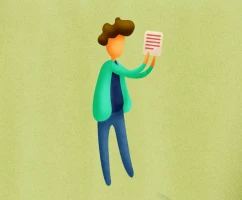
Human Resources Translation
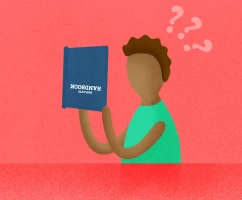
Employee Handbook Translation
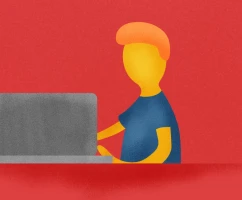
Translation Rates in 2023 - A Complete Guide

Professional Baccalaureate Translation
Need Baccalaureate translation during the application process? Is speed critical? Then visit Protranslate for a worthy service.
Your request has been submitted. Our team will contact you as soon as possible.
Contact Information
Join over 65,000 users that use Protranslate for their translation needs!
24 Hours, 7 Days
(Live Chat: 09:00 AM - 02:00 AM)

Baccalaureate Translation
Are you planning to apply for a university using your Baccalaureat diploma but you need baccalaureate translation for the application? Then you are at the right address. International baccalaureate diploma has validity in approximately 100 countries on university level and its translation carries critical importance during application and admission processes. Thus, having excellent baccalaureate translation services is extremely important. Protranslate offers excellent baccalaureate translation in English, German, French, Japanese as well as other languages. In order to stand out from the rest, a professional baccalaureate translation is critical and that is why Protranslate is here to help.
Official Baccalaureate diploma translation is a sensitive process and it should be handled by professional baccalaureate translation offices only. In case of an error, the entire document can go to waste. So as not to put you through such trouble, Protranslate works with professional native translators and editors who have expertise on the subject and experienced linguists who proofread the target document when translation is done. To ensure perfection on general baccalaureate translation, Protranslate hires professionals.
Baccalaureate Thesis Translation Service
Providing online professional translation, Protranslate is “the” option to trust with your baccalaureate thesis translation. With its outstanding speed in critical document translations, Protranslate is the leading student documents translation service online. We are not like any conventional baccalaureate translation office because our finely selected translators work hard to provide an online baccalaureate translation at a high quality and top speed. Already proven to be successful in academic translations, Protranslate offers an extraordinary baccalaureate academic translation for everyone.
The advantages Protranslate offers are not limited to a team of professionals or quick services. The quality is also praise-worthy and its ease of access is remarkable. As it is an online professional translation service, you can access Protranslate within seconds regardless of your location. By uploading your documents and specifying preferences, you can have translation service for your baccalaureate certificate started within couple minutes. Protranslate also has notarization and certification options, too.Since most of the Baccalaureate translation requests are sent generally by students, we have set a reasonable baccalaureate translation price.

Baccalauréat Universitaire Translation
If you need a baccalauréat universitaire translation right now, why don’t you head over to the order page? Offering certified baccalaureate translation services in more than 70 languages provided by experienced translators, quality and speed at one place, Protranslate is the most trustworthy translation service online. If you have baccalaureate to translate, Protranslate is the right address for you.
If your documents need to include grade cards, consider it done. Preserving the document type and templates, Protranslate aims to satisfy you with baccalaureat translation services because your satisfaction and appreciation is important. At any time of any day, you can easily log into your Protranslate account, upload your baccalaureate document and wait for its professional translation to be completed by the professional translators with relative background on the field. Protranslate guarantees quality, service and speed all at once.
2024 Translation Prices

Frequently Asked Questions
This website uses cookies to make your browsing experience better.
Voice speed
Text translation, source text, translation results, document translation, drag and drop.

Website translation
Enter a URL
Image translation
Instantly translate and preserve the layout of any document format into any language . Free.
Preserves the layout of your documents, 109 languages supported and growing, no installation required, no registration required.
Please enable JavaScript
TOP 20 TRANSLATION QUICKLINKS
- Translate English to Spanish
- Translate English to Indonesian
- Translate English to Arabic
- Translate English to Portuguese
- Translate English to Persian
- Translate English to French
- Translate English to Russian
- Translate English to Italian
- Translate English to Chinese (Simplified)
- Translate Spanish to English
- Translate French to English
- Translate English to Malay
- Translate English to Polish
- Translate Estonian to English
- Translate English to Hindi
- Translate Indonesian to English
- Translate English to Vietnamese
- Translate Russian to English
- Translate English to Korean
- Translate German to English
Reliable, quick, and hassle-free
Preserves the layout of your original office document
Upload your document and we'll instantly translate it for you while preserving its delicate layout. Your document's text is extracted taking special care in maintaining the exact format and styling of each section.
Doc Translator uses the awesome power of Google Translate to translate your documents. Why re-invent the wheel? Doc Translator relies on the ever-improving abilities of the Google Translate service to process the text from your documents and return it in the language you need.
The translated text is re-inserted into your document, preserving the original layout. No more copy/pasting text in and out of your documents. Doc Translator intelligently grabs and then re-inserts text exactly where it belongs.
Upload your original document
Google Translate performs the translation
Download your translated document
Translate any document's text to English:
- Azerbaijani
- Chinese (Simplified)
- Chinese (Traditional)
- Haitian Creole
- Kinyarwanda
- Kurdish (Kurmanji)
- Luxembourgish
- Myanmar (Burmese)
- Odia (Oriya)
- Scots Gaelic
Supported document formats
We support all major office document formats. Upload your document in one of these formats and we'll handle the rest.
Right-to-Left (RTL) Language Support
As part of our mission to create a world where everyone can belong, we help connect more than 300 million Arabic, and Hebrew-speakers with support for right-to-left (RTL) languages - including enhanced support of cursive scripts, rendering of complex text layouts, document layout mirroring, and text alignment for bidirectional languages.
Information is read from right to the left in right-to-left layouts.
Online Doc Translator now fully supports translations of the following right-to-left languages:
Helping people connect
Every minute of every day companies and individuals around the globe rely on our service in order to better conduct business, communicate, and understand the world in which we live.
Helping to bring people together, regardless of language is our mission and we are proud of the part we're playing.
109 languages supported
12,031 featured articles world wide
176,964,981 documents translated since 2010
We try our very best to make cool things which people find useful. All over the world, every day, we help thousands of people save their valuable time through the use of our tools:

Frequently Asked Questions

Stack Exchange Network
Stack Exchange network consists of 183 Q&A communities including Stack Overflow , the largest, most trusted online community for developers to learn, share their knowledge, and build their careers.
Q&A for work
Connect and share knowledge within a single location that is structured and easy to search.
How to translate foreign-language theses into English?
i found many papers and thesis written in different languages than English, mainly Portuguese and Chinese. is there an efficient way to benefit from these papers and thesis instead of translating them using Google translate.
- publications
- translations
3 Answers 3
If you have access to the digital copies, then dump the entire thing into Google translate so you can skim read it. Having done that, it would be a good idea to find a native speaker and get them to check the translation of specific sections that seem relevant on the basis of the automated translations. I wouldn't suggest asking a native speaker to translate the whole thing, or even read the automatically generated translation of the entire thing.
Another thing you could do is see if you can find other papers that cite the papers that you're looking at. One of them may contain a summary that'll tell you if you need to bother pursuing that particular paper. This will be pot luck though, and it will be a lot easier to just use Google translate.
Of course, don't use Google's translations in your work; get a native speaker to help you when it comes to that.
- It seems that Google translation has been improved quite a bit since last time I used it(a while ago). I just tested it using some articles in Chinese. The result is pretty much understandable. – Nobody Commented Apr 22, 2014 at 13:18
- Yeah, this method isn't going to be great for complex things of course, but at least it'll let you know which sections you can completely ignore, and will let you get the gist of the paper. – Jangari Commented Apr 22, 2014 at 23:03
- 1 Yes. Knowing a language yourself is better, so is hiring someone who does if you can do that, but life is too short to not use Google Translate. – Colin McLarty Commented Feb 16, 2017 at 19:42
If you have some knowledge of the source language, you can use Linguee.com to find the best translation of a word out of documents which have been translated (EU commission's texts for instance). Thus, you'll have the word in all its possible contexts. This is very useful for legal or technical vocabulary.
A good working knowledge of languages is important for many fields of research. Google translate is good, but no substitute for actually being able to just read the article in the original. You don't need to know that many languages for most fields. I recommend that you pick up at least one research language other than English. Which one will be most useful will depend on your field and perhaps your specific topic. (My topic requires Latin, for instance.)
You must log in to answer this question.
Not the answer you're looking for browse other questions tagged publications thesis translations ..
- Featured on Meta
- Upcoming sign-up experiments related to tags
Hot Network Questions
- How are "pursed" and "rounded" synonymous?
- Is automorphism on a compact group necessarily homeomorphism? How about N-dimensional torus?
- Were there engineers in airship nacelles, and why were they there?
- causal triads and infinite recursion in medieval and/or classical philosophy
- A 90s (maybe) made-for-TV movie (maybe) about a group of trainees on a spaceship. There is some kind of emergency and all experienced officers die
- Why depreciation is considered a cost to own a car?
- Next date in the future such that all 8 digits of MM/DD/YYYY are all different and the product of MM, DD and YY is equal to YYYY
- Fantasy TV series with a male protagonist who uses a bow and arrows and has a hawk/falcon/eagle type bird companion
- Why was the animal "Wolf" used in the title "The Wolf of Wall Street (2013)"?
- Is Légal’s reported “psychological trick” considered fair play or unacceptable conduct under FIDE rules?
- Sets of algebraic integers whose differences are units
- Is there any legal justification for content on the web without an explicit licence being freeware?
- Font shape warnings in LuaLaTeX but not XeLaTeX
- What is the relationship between gravitation, centripetal and centrifugal force on the Earth?
- Folk stories and notions in mathematics that are likely false, inaccurate, apocryphal, or poorly founded?
- How to Draw Gabriel's Horn
- Why do we care if the likelihood function is tractable?
- Correlation for Small Dataset?
- What is the best catalog of black hole candidates?
- Reconstructing Euro results
- Less ridiculous way to prove that an Ascii character compares equal with itself in Coq
- Is it possible to complete a Phd on your own?
- Exception handling: is one exception type sufficient?
- Have children's car seats not been proven to be more effective than seat belts alone for kids older than 24 months?
- Masters Degrees
- Bachelors Degrees
- Associate Degrees
- Career Pathways Bridge Program
- Online Degree Programs: Bachelor’s, Master’s & Associate’s
- Global Offerings
- Faculty Spotlight
- Faculty Directory
- Open Faculty Positions
- Policies and Documents
- Professional Studies
- Continuing Education
- Executive Education for Industry Leaders
- High School Academy
- Areas of study
- Divisions & Departments
- Professional Pathways
- Degree Directory
- Graduate Admissions Criteria
- Graduate Application Requirements and Deadlines
- Graduate Financial Aid
- Summer Publishing Institute
- Undergraduate
- Undergraduate Admissions Criteria
- Undergraduate Application Requirements and Deadlines
- Undergraduate Financial Aid
- Transfer Students
- Adult Learning
- Your Community
- New Students
- DAUS: Military Veterans
- Global Perspective
- Graduate Events
- Undergraduate Events
- Frequently Asked Questions
- Student Success
- Academic Advising
- Student Life
- Resources and Services
- University Life
- Arts, Culture, and Entertainment
- Health and Wellness
- Studying in New York City
- Travel and Transportation
- Policies and Procedures
- NYU SPS Wasserman Center
- Career Success
- Industry Engagement
- Hire NYU Talent
- Faculty Engagement
- STUDENTS & ALUMNI: GET STARTED
- Events Central
- Office of Events
- Meet the Team
- SPS Conference Room and Event Spaces
- Event Request Form
- Event Guidelines
- Conferences
- Hospitality Conference
- Capital Markets in Real Estate
- Women in Real Estate
- REIT Symposium
- NYU Coaching and Technology Summit
- Future Workforce Global Summit
- NYU SPS Events
- Undergraduate Convocation
- Graduate Convocation
- Student Events
- Capstone Fair
- Alumni Advantage
- Alumni Stories
- Current Alumni
- Give to NYU SPS
- Parents Council
- SPS Reunion
- NYU SPS Home
- Master’s in Translation and Interpreting Online

Master's in Translation and Interpreting Online
100% online study.
Want to turn your language skills into a translation or interpreting career? Whether you are interested in business translation, medical translation, conference interpreting, legal translation, literary translation, transcreation, or localization, the online Master's (MS) in Translation & Interpreting offered by the NYU SPS Center for Publishing & Applied Liberal Arts prepares you for a wide range of translation and interpreting careers, from localization to project management. This 36-credit, fully online program provides students with the best of both worlds—the convenience and flexibility of learning on your own terms and at your own pace, while benefiting from a rigorous curriculum, a variety of elective courses tailored to your interests, and the prestige of earning your master’s degree at NYU , one of the world's most respected universities.

Degree Advantages
- Fully online format with opportunities to engage with faculty members and students at regular intervals
- Curricu lum that allows students to study translation from any language into English
- Covers both written translation and the best practices of oral interpreting
- Elective courses that customize your learning experience
- Prepares students for the American Translators Association (ATA) Certification Exam, a language industry-recognized credential
- Taught by faculty members who are professional experts in their fields
- Full-and part-time study options
Curriculum and Degree Requirements
Authoritative curriculum information can be found exclusively in the University Bulletin . All other content, including this web-page, is for informational purpose only. You can find the curriculum for this program on this page of the Bulletin.
Applicants to the MS in Translation and Interpreting should consult these Test Instructions for assessing language readiness.
Explore Graduate Opportunities at NYU SPS
Join an upcoming online session to learn more about our graduate degree program in Translation and Interpreting. As an attendee of an Explore Graduate Opportunities at NYU SPS session, you will meet members of our team and have the opportunity to ask questions about the online program, admission requirements, and application process.
6:00 PM until 7:30 PM EDT
Who Should Consider Earning the MS in Translation & Interpreting?
Whether you are interested in pursuing a full-time position with a language services provider or prefer the flexibility of a freelance translation and interpreting career, the MS in Translation & Interpreting will prepare you for a professional path in the translation industry, which is growing faster than many other fields. The online program provides students with the professional growth and cutting-edge translation and interpreting skills to work anywhere in the world. In a 2022 survey, we found that 100% of recent MS in Translation & Interpreting graduates reported being employed within six months of graduation.
Student Experiences
Become a language professional.
Faculty members who teach in the online MS in Translation & Interpreting program share their deep expertise with students from around the world. The comprehensive online program focuses on the specialized skills required for translation and interpreting, while thesis advisers provide guidance to students on the subtle nuances of Spanish-to-English translation , Chinese-to-English translation , Arabic-to-English translation , and numerous other language pairs.
Choose From a Wide Range of Elective Courses in Emerging Fields
The online MS in Translation & Interpreting program affords a solid core in theory and practice, terminology, and technology. In addition, the degree's elective courses provide students with the knowledge and tools to succeed in fields such as legal translation , literary translation , transcreation , website localization , machine translation , and financial translation and will provide tremendous flexibility in your translating and interpreting career.
Build a Portfolio of Projects That Demonstrates Your Translation and Interpretation Skills
The online MS in Translation & Interpreting is designed to ensure that you walk away with a comprehensive portfolio of translation projects that truly demonstrate your translation and interpreting skills to prospective employers, organizations, and clients. Your portfolio can be tailored to the area of specialization you choose—from medical translation , literary translation , and legal translation , to transcreation , financial translation , and localization of software and websites .
FREQUENTLY ASKED QUESTIONS
What is a master's degree in translation and interpreting.
A master's degree in translation and interpreting is a graduate-level academic program designed to provide students and working professionals with advanced training in the fields of translation and interpreting. The New York University SPS MS in Translation and Interpreting online program is intended for students with proficiency in at least one language in addition to English and who seek to develop specialized skill sets in translating written texts and interpreting spoken communication.
What can you do with a Master’s (MS) in Translation and Interpreting?
Once you've completed your MS in Translation & Interpreting, available jobs range from translation and localization to publishing and project management. Whether in law, finance, advertising, or intergovernmental agencies, the great need for translators is creating rewarding freelance and employment opportunities.
What languages are in high demand for translators?
Translators are in high demand across many languages given the global market for these professionals. The MS in Translation & Interpreting is open to applicants who wish to study translation from any language into English. The curriculum features terminology, research, revision, technology, and professionalization skills along with language-specific guidance.
Do translators need a Master’s degree?
Having a Master’s degree sets you apart and shortens the path to success in this rewarding career. Almost half of translators and interpreters surveyed by the American Translators Association hold master’s degrees. The MS in Translation & Interpreting program prepares its students for dynamic careers as highly skilled translators and language specialists.
How can I prepare for the ATA Certification Exam through this program?
Many of our students take the American Translators Association (ATA) Certification Exam , which is a 3-hour test-based credential and an advantageous addition to your resume. By the end of the MS in Translation & Interpreting program, graduates translate at a level that meets the ILR skill descriptions for professional performance.
What is the difference between translation and interpreting?
Translators work with written texts, while interpreters work with the spoken word. Students benefit from exposure to both practices, even though most professionals specialize in either translation or interpreting. In this program, students will master advanced strategies for translating complex documents and gain a foundation in the principles of interpreting.
How can I finance my degree? Are financial aid or scholarships available?
Options for financing the MS in Translation & Interpreting degree include Federal Student Aid (FAFSA), scholarships, private loan options, employer or veterans’ benefits, and New York University payment plans. We encourage students to explore the NYU SPS resources page on Graduate Financial Aid to find more information on financial aid and scholarships.
How does the MS in Translation and Interpreting at NYU differ from other programs?
The Master of Science in Translation and Interpreting at New York University was the first program to offer students a fully online degree in this discipline and has done so since 2012. We are also the only program to offer translation from any source language into English. Students will receive language-specific guidance in independent studies and the thesis project. We also designed the curriculum with the understanding that many translators and interpreters work in multiple language pairs. Our focus is on core skills in research, terminology, revision, technology, and professionalization to support translation from any language, along with the widest range of electives available.
What are the admission requirements for this online MS in Translation and Interpreting?
The NYU SPS Admissions team carefully weighs each component of your application during the admissions review process to evaluate your ability to benefit from and contribute to the dynamic learning environment and the challenging curriculum that the NYU School of Professional Studies offers. Visit the NYU SPS Graduate Application Requirements and Deadlines page for additional information about our admission requirements. Applicants to the MS in Translation and Interpreting should also take the ACTFL Proficiency Test .
How long does it take to complete the online MS in Translation and Interpreting?
The NYU SPS MS in Translation and Interpreting program usually takes three semesters to complete as a full-time student and two to four years to complete as a part-time student.
Is it worth doing a Master of Science in Translation and Interpreting?
A Master’s degree is the gold standard credential in the language professions. The decision to pursue a Master of Science in Translation and Interpreting depends on your career goals and interests. Meet with professionals in the field and current students to gather insights and learn how completing an online graduate program in translation and interpreting can help you fulfill your aspirations.
Can translators make a lot of money?
Translators' wages vary depending on several factors such as the specialization in which they work and their experience, work structure (freelance vs. salaried), and clientele. For example, salaried professionals working in advertising or computer systems design make $91,390 to $106,540 per year on average, while those working in elementary schools or local government make $56,490 to $63,680 per year on average according to the Bureau of Labor Statistics . Freelance language professionals can make into the six figures, according to the American Translators Association .
What language is most in demand for translation?
The demand for translation services can vary depending on factors such as geographic location, industries, and global economic trends. However, certain languages are consistently in high demand due to their widespread use in international business, diplomacy, and cultural exchange. Chinese, Spanish, and Arabic are examples of in-demand languages for translation services. Translators in other languages can specialize and succeed as well. The NYU SPS program has trained students in Arabic, Chinese, Farsi, French, Greek, Italian, Japanese, Portuguese, Spanish, and many others, including languages of lesser diffusion.
Will artificial intelligence replace translators?
While AI technologies have made significant advancements in the digital age, they are not likely to replace human translators any time soon. This is because, unlike a professional human translator, AI struggles with nuance, cultural understanding, humor, and creative expression. The future of translation and the language services industry is likely a collaborative one, with human translators and AI working together to provide accurately translated content. The NYU MS in Translation & Interpreting program has integrated AI throughout the curriculum, including in particular the Core courses in Translation Technologies and The Language Professions and electives from Transcreation and Marketing Translation to Patent Translation to Post-Editing Machine Translation. The teaching of up-to-date technologies, including AI, is a key component of our program’s learning outcomes. We also hold events about AI in the Professions .
Is being a translator a stressful job?
Our faculty and students report that translation careers are joyful, creative, and rewarding. Being a translator can be challenging, and the level of stress varies like any job, but translation is ultimately a fulfilling career that leverages your multilingual skills. Since many translators and interpreters are self-employed, you will also have options to take control of your career. The NYU Master’s program in Translation & Interpreting helps students track toward freelance or full-time employment based on your personal situation and preferences.
How do I start a career in translation?
To start a career in translation, it's crucial to be fluent in at least two languages. From there, you can obtain a formal education to build your foundation and establish yourself as a professional in the field.
How many years does it take to become a translator?
The time it takes to become a translator can vary. Many translators start their profession by earning a bachelor's degree in any field and then pursue a Master’s degree in Translation & Interpreting to dive into a specialization of their interest.
Program Affiliations

We would like to thank Phrase for granting us free access to their platform through the Phrase Academic Edition .
Connect With Us
Your request has been submitted, department highlights, translating 'the beast within: humans as animals': interview with alison duncan, international product development manager & french to english translator, finding a place to rest: fostering brave spaces to find and utilize our voices, embracing every hue: liberating imposter syndrome, intersectionality, & borders through storytelling, press start to video game localization with marina ilari, translation and interpreting faculty member alejandra oliva publishes rivermouth: a chronicle of language, faith, and migration, pala academic director of continuing education jenny mcphee’s translation of elsa morante’s novel ‘lies and sorcery’ wins accolades, scribe at spirit week: the translated and queer/banned book expo, pala student bethany fisher pursues nyu sps master’s degree to help give a voice to marshallese people, ms in translation & interpreting student justin sergi publishes translation in asymptote, translators in the digital age: interview with faculty member elizabeth lowe, pala alum spotlight: mariam moustafa, ms in translation & interpreting, elizabeth hsu, ms in translation and interpreting graduate, selected as 2023 flag bearer, navigating peacekeeping and climate change through translation, ai in the professions: professional writing, translation, and the new face of content creation, pala faculty spotlight: barbara inge karsch, ms in translation & interpreting, ms in translation & interpreting student judith santos awarded the malkemes scholarship for fall 2022, take the next step.
Learn more about your program of interest and apply.
Bachelor’s Thesis Translation Services

There are a number of reasons why you might need a translation of your Bachelor’s thesis
A Bachelor’s thesis is an extended research project completed as part of an undergraduate program. A Bachelor’s thesis is very often referred to as a Bachelor’s dissertation. There are various reasons you may need to get your Bachelor’s thesis / dissertation translated. If you are planning to further your studies abroad, you may need to get your thesis or dissertation translated into the language of the university for which you are applying. Your university tutor may recommend the publication of your work, requiring translation of your Bachelor’s thesis for a particular journal. You may want to make your Bachelor’s thesis / dissertation more accessible to others, such as academics or research partners from other countries and this may require translation into another language. Whatever the reason, simply upload your document to Linguation’s online service and get a quote for the translation of your Bachelor’s thesis.
Linguation provides high-quality translation of your Bachelor’s thesis
You can rely on Linguation to provide top-quality translation services for all your Bachelor’s thesis translation needs. At Linguation we recognise the immense amount of time and effort that goes into a Bachelor’s thesis. It is vital that any translation of your Bachelor’s thesis / dissertation reflects this in terms of accuracy and care. We will select the perfect translator from our global team of professional linguists to translate your Bachelor’s thesis. Linguation will allocate a native speaker with the relevant academic qualifications and background. This way you can be assured that the subject content is translated correctly and appropriately.
Upload your Bachelor’s thesis quickly and easily to our online system
Linguation’s online system is quick and simple to use. To receive an instant quote, all you need to do is upload your document securely via our safe online system. If you have a glossary of specific terms you would like used in the translation of your Bachelor’s thesis / dissertation, please let us know and we will be happy to arrange this. Once you confirm your order, we will assign your translation to an appropriate professional and translation will begin. Our online system will allow you to track the progress of your translation. Let Linguation support you with the translation of your Bachelor’s thesis.
Guarantee of translation quality
- Sworn translators
- Two-stage quality control
- Free editing service
Do you have questions? Chat with us now: Live Support
Your verified partner for certified translations
Making educational experiences better for everyone.
Immersive learning for 25 languages
Marketplace for millions of educator-created resources
Fast, easy, reliable language certification
Fun educational games for kids
Comprehensive K-12 personalized learning
Trusted tutors for 300+ subjects
35,000+ worksheets, games, and lesson plans
Adaptive learning for English vocabulary
Go to main content | Go to main menu | Go to search
Department of English and American Studies
Search ... Search ...
Suggested topic areas for Diploma theses
(These are areas offered by the individual teachers. You can also approach most teachers with your own suggestions.)
Nikola Fořtová, B.A., M.A.
- E-learning, m-learning: application of new technologies in teaching
prof. Milada Franková, CSc., M.A.
- Medieval English Literature
- Contemporary British Literature
- British cultural studies
Stephen Paul Hardy, B.A., P.G.C.E, M.A., Ph.D.
- British & Irish 17th, 19th, & 20th Century Literature (all genres)
- British Poetry (1558–2012) and North American 20th Century Poetry
- British Cultural History (20,000 B.C.–2012)
- British Film/TV/Media or any aspect of 20th C British Cultural Studies and North American Film and Popular Music
Mgr. Martina Horáková, Ph.D.
- Australian literature and cultural studies
- Contemporary American literature
- Ethnic minority literatures in North America and Australia
- Indigenous literatures
doc. PhDr. Jana Chamonikolasová, Ph.D.
Prof. Jan Chovanec, Ph.D.
- Methodology: Discourse analysis, pragmatics, critical discourse analysis, stylistics, sociolinguistics
- Areas: Language in the media, language and law, language and society
- Topics: Representation of social groups, interaction and interactivity,discourse coherence in spoken and written language, discourse patterns in media communication, modern genres of English, diachronic genre analysis (historical pragmatics)
doc. Mgr. Tomáš Kačer, Ph.D.
- Modern and contemporary British drama and theatre (plays, playwrights, performance analyses; history/theory)
- American drama and theatre (plays, playwrights, performance analyses; history/theory)
- British theatres and theatre festivals
- Other forms of performance and culture
PhDr. Simona Kalová, Ph.D.
- Practical aspects of teaching and learning
- Educational assessment and evaluation
Mgr. Renata Kamenická, Ph.D.
- Empirical translation studies of contemporary translation practices
- Translator’s style; style in/of translation
- Psycho-cognitive aspects of/in translation
- Individual vs. shared discursive strategies in translation
- Translations vs. non-translations; translation-specific tendencies
- Translation practice/theory interface (in both directions)
- Intralingual translation
doc. Michael Kaylor, M.A., PhD
- Romantic and Victorian poetry
- The Modernist novel in Britain and Ireland
- English Decadence
- The Bloomsbury Group
- Walt Whitman
- Theory of Biography
- Gay Studies, homoeroticism in the Arts
- Literary canonicity
Mgr. Filip Krajník, Ph.D.
- William Shakespeare/Early-Modern English Drama (BA/MA)
- Late Mediaeval English Literature (BA only)
- Literary Representations of Sleeping and Dreaming (BA/MA)
- Philip K. Dick (BA/MA)
- Literary Translation (BA/MA)
doc. PhDr. Naděžda Kudrnáčová, CSc.
- Syntax-semantics interface
James Little, Ph.D.
- Irish studies
- Theatre studies
- Samuel Beckett studies
- The literature of coercive confinement
Mgr. Linda Nepivodová, Ph.D.
- Language Testing
- Error Correction
- Second Language Acquisition
Mgr. Jana Pelclová, Ph.D.
- Stylistic analysis - analysis or comparison of the register of advertising, e_communication, F2F conversation, narrative stylistics (BA)
- Discourse of advertising - linguistic analysis of selected topics (e.g. figures of speech, spokenness vs. writtenness, pragmatic principles, humour, word-picture contextualisation, etc.) (MA)
- Topics in Pragmatics - analysis of authentic conversation, fictional conversation, pragmatic aspects in the discourse of advertising, etc. (MA)
- Discourse analysis - selected topics in the discourse of children's literature, advertising, CMC, politics, etc. (MA)
doc. Tomáš Pospíšil, Ph.D.
- Canadian film and TV
- American film and TV
- Cinematic representation of American minorities; films by minority filmmakers
- American literature
- American history and/or culture
- American cultural studies
Ing. et Mgr. Jiří Rambousek, Ph.D.
- History and bibliography of Czech translations from English
- Reflection of older translations in contemporary Czech periodicals
- Selected contrastive aspects of English and Czech as reflected in translation
- Cognitive views of translation and the translator
- Personalities of the early history of the Department of English and American Studies
Mgr. Jitka Sedláčková, Ph.D.
- Second Lanuage Acquisition
- Individual Learning Differences in Second Language Learning
- Students with Specific Needs and EFL
- Reading Skills and Reading Strategies in EFL
Jeff Smith, M.F.A, Ph.D.
- Literatures and cultures of the United States
- Popular arts, culture and media
- Relationship of politics to literature and the arts
- Historical development of US cultures and politics
PhDr. Don Sparling, B.A.
- Canadian literature (all genres, with a special interest in historical fiction and drama)
- Multiculturalism in Canada, interculturalism in Quebec
- The French-English relationship in Canada (all aspects - historical, social, cultural, educational [e.g. immersion schooling], etc.)
- Canadian culture (all aspects except film, where doc. Pospíšil is your man)
- Contemporary issues relating to the indigenous peoples (First Nations, Inuit, Métis)
- Depending on the topic, other areas that you might have a particular interest in
PhDr. Kateřina Tomková, Ph.D.
- Accents of English and their perceptions
- Oral presentation, rhetorics and elocution
- Common pronunciation mistakes and theire radication
- Statistical procession of most common pronunciation errors
- Articulatory settings in E and CZ
- The use of authentic material such as sitcoms and films in teaching oneself better speaking skills
- Musical aptitude correlating with FL acquisition
Jeffrey A. Vanderziel, B.A.
- History, culture, representation and/or literature of indigenous peoples in North America
- History and/or culture of minorities in North America
- LGBTQ history, culture, literature
PhDr. Jitka Vlčková, Dr.
- Australians in different historical periods (BA)
- Indigenous and other minorities in Australia - history and/or cutlture (BA)
- Australian cultural studies (BA/MA)
- Registers in English. Australian English. Aboriginal English. Intercultural communication (MA)
- Gender roles, language, media, communication, legislation, minorities, mainstream cultures; issues of discrimination and/or racism (MA)
Mgr. Olga Zörnerová
- marketing transcreation
- localisation and related topics (MT, MTPE, style guides, terminology, working with agencies and LSPs)
- video game localisation
You are running an old browser version. We recommend updating your browser to its latest version.
More info Close

- Twitter (X)
Graduate Diploma in Translation and Interpreting
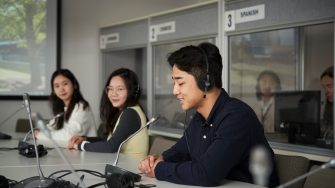
Register for our Postgraduate Online Info Evening
Thursday, 11 July 6:00 PM – 6: 30 PM (AEST)
Gain focused advice on how postgraduate study can help you progress in your career. Hear from a current UNSW postgraduate student to access personalised insights and put your questions to us in the live Q&A session.
Entry requirements
- What will I study?
Future careers
How to apply, fees & scholarships.
The UNSW Graduate Diploma in Translation and Interpreting is tailored to meet your career goals. Choose electives to specialise in a particular field while you build professional translating and interpreting skills. You'll develop practical techniques with access to current real-world technologies and also with translation studies and interpreting coursework led by industry-experienced lecturers.
Why study a graduate diploma? Open the door to your profession without committing to a full master’s degree. A graduate diploma offers more opportunities to develop your specialisation than the shorter graduate certificate. In comparison, the master’s degree takes two years and offers comprehensive knowledge, professional development, and further accreditation opportunities. The courses in the graduate diploma can also be credited toward the master's degree if you wish to continue your studies.
Key features
Customise your studies Choose courses that focus on your preferred specialisation, including legal, medical, business, media, and community translation and interpreting. Depending on demand, you’ll build your specialisation in Chinese (Mandarin), Chinese (Cantonese), French, Greek, Indonesian, Italian, Japanese, Korean, Russian, Portuguese, Serbian or Spanish.
Real-world technology You'll have access to the latest interpreting and translation technology and equipment including training stations, simultaneous interpreting booths, a moot courtroom, translation memories, machine translation, audio-visual translation (subtitling and captioning) and corpus linguistics software.
NAATI endorsement The National Accreditation Authority for Translators and Interpreters (NAATI) endorses this graduate certificate, which means you will be prepared to sit the following exams with NAATI:
- Certified Provisional Interpreter
- Certified Interpreter
- Certified Translator
Professional experience Apply what you learn in class to dynamic, real-world professional settings that complement the academic components of your chosen courses.
Potential to level up This program is a pathway toward the UNSW Master of Translation and the UNSW Master of Interpreting . Its courses can also be credited toward the UNSW Master of Translation and Interpreting .
Why study at UNSW?
- Connect with UNSW’s strong industry links and partnerships
- Join a proudly diverse, collaborative, and inclusive community
- Learn through supportive, research-informed teaching
- Access a global alumni network
- Endorsement with NAATI
Bachelor degree (or equivalent qualification) in any discipline with a record of academic achievement equivalent to a UNSW credit average of 65% and an advanced level of bilingual proficiency.
Applicants should provide the evidence of proficiency in the nominated language through prior study or NAATI certification/accreditation. Alternatively, upon submitting an application, applicants may be prompted to undertake a proficiency test.
Recognition of prior learning Receive up to 6 units of credit per course towards this program if you have completed the short courses as advised in the Graduate Diploma in Translation and Interpreting Handbook entry requirements.
English language requirements
You may be asked to provide evidence of your English proficiency to study at UNSW depending on your educational background and citizenship. English language skills are vitally important for coping with lectures, tutorials, assignments and examinations - this is why UNSW requires a minimum English language competency for enrolment.
If you’re completing an Australian Year 12 qualification (e.g. NSW HSC or equivalent), you do not need to provide anything extra to prove your proficiency. Your qualification will be used as evidence of your English proficiency.
If you do need to provide evidence of your English proficiency, this will be indicated in your application. You can prove this by providing evidence that you meet one or more of the following criteria:
- English language tests and university English courses
- Prior study in the medium of English
- Other qualifications
If you need to improve your English skills before you start your degree, UNSW College’s Academic English Programs are for you. The programs are suitable for various English levels and help you prepare for university studies and life in Australia.
You may be asked to provide evidence of your English proficiency to study at UNSW depending on whether you are from an English-speaking background or non-English speaking background. English language skills are vitally important for coping with lectures, tutorials, assignments and examinations - this is why UNSW requires a minimum English language competency for enrolment.
If English is not your first language, you’ll need to provide proof of your English proficiency before you can be given an offer to study at UNSW. You can do this by providing evidence that you meet one or more of the following criteria:
Check the specific English language requirements for this program
Program structure.
The Graduate Diploma in Translation and Interpreting involves completing eight courses: a core discipline course, two practical courses (one in interpreting, one in translation) and five prescribed electives. You can tailor the practical courses and prescribed electives toward your career goals and interests.
- Research and Theories of Translation and Interpreting
You'll choose one practical course in interpreting. This list is a sample only, for the current course list please visit the handbook .
- Advanced Conference Interpreting
- Community of Practice for Interpreting
- Conference Interpreting
- Interpreting Certification Preparation
- Interpreting in Community Settings
- Interpreting in International Settings
- Interpreting in Legal Settings
You'll choose one practical course in translation. This list is a sample only, for the current course list please visit the handbook .
- Advanced Translation Technology and Industry Practice
- Multimedia Translation
- Specialised Translation
- Translation Certification Preparation
- Translation Technology
You'll choose five electives. This list is a sample only, for the current course list please visit the handbook .
- Any of the practical courses list above
- Cross-cultural Pragmatics
- Current Issues in Bilingualism
- Language Technology
- Second Language Acquisition
- Semantics and Pragmatics
- The Grammar of English
- The Psychology of Language
Note: this information is subject to change. For the most current information, please view the program structure in the Graduate Diploma in Translation and Interpreting Handbook .
A Graduate Diploma in Translation and Interpreting will build the framework and skills to support and strengthen your career progression as a translator or interpreter.
Career opportunities
Depending on the courses you choose, you can work toward a career in the following industries:
- Business and economics
- Education and academia
- Law and international relations
- Marketing and publishing
- Media and journalism
- Science and technology
Applications must be submitted through our Apply Online portal. We encourage you to submit your completed application as early as possible to ensure it will be processed in time for your preferred term. Some high-demand programs and Faculties with limited places may have an earlier application deadline or commencement date. Find out more .
Ready to start your application?
For most international students, applications are submitted via our Apply Online service. We encourage you to submit your completed application as early as possible to ensure it will be processed in time for your preferred term.
Some high-demand programs with limited places, may have an earlier application deadline or may have an earlier commencement date. For more information visit our international applicant information page .
Commonwealth Supported Places
All places within this degree are Commonwealth supported. This means that if you receive an offer from UNSW Sydney as a domestic student, you will have a substantial proportion of your fees subsidised by the Australian government. Start your application today with our guide on how to apply .
*The indicative Commonwealth Supported Place (CSP) fees are an estimate based on the relevant student contribution band/s for a Commonwealth Supported Place undertaking a standard full-time load of 48 units of credit per year (1 Equivalent Full Time Student Load/1 EFTSL). To find out more about Commonwealth Supported Places visit Postgraduate Commonwealth Support.
Indicative fees are a guide only and have been calculated based on the typical enrolment patterns of students undertaking the degree/program. The indicative fee listed here is an estimate for tuition only and excludes non-tuition fees and charges. The amount you pay will vary depending on the calendar year of enrolment, the courses you select and whether your study load is more or less than 1 Equivalent Full Time Student Load (48 units of credit (UOC) per year).
You should not rely on indicative fees as fee increases are assessed when required and may exceed the indicative figures listed here. Actual fees are calculated on enrolment. More information on fees can be found at the UNSW fees website .
*Fees are subject to annual review by the University and may increase annually, with the new fees effective from the start of each calendar year. The indicative fees listed here are based on an estimated average and are for tuition only other fees and charges are not included. The amount you pay will vary depending on the calendar year to enrol, the courses you select and whether your study load is more or less than 1 Equivalent Full Time Student Load (8 courses per year).
Indicative fees are a guide for comparison only based on current conditions and available data. You should not rely on indicative fees. More information on fees can be found at the UNSW fees website .
Indicative fees to complete the program have been calculated based on a percentage increase for every year of the program. Fee increases are assessed annually and may exceed the indicative figures listed here.
Indicative fees to complete the program include tuition plus an estimate of study-related costs of approximately $1,000 per year. To find out more about other costs, visit UNSW International .
Scholarships
At UNSW, we award over $83 million in scholarships each year. We pride ourselves on rewarding excellence and making university accessible to students from all walks of life. Whether you’re a domestic or international student, our range of scholarships, prizes and awards can support your journey.
QS World University Rankings, 2024.
AFR Top 100 Future leaders Award.
#1 Australian uni attended by start-up founders.

Shirelle Altona
Current Student

Careers Unlocked: Will AI & Technology Enhance Creative Industries?

UNSW Arts, Design & Architecture: Shape the Future Through Creativity

Love What You Do

Curating & Cultural Leadership

Planning and Designing Smart Cities
- For the candidate
- About the University
- Academic High School
- Postgraduate
- Collaboration
- Alumni Club
- For the student
- For the employee
Polish-Japanese Academy of Information Technology ul. Koszykowa 86; 02-008 Warsaw
The essentials of a thesis
The thesis should have a title page according to the established template and an abstract of the thesis (max. 1000 characters) and keywords (min. 3).
A paper written in a language other than Polish should additionally include a second title page in Polish, as well as an abstract of the paper and key words.
Prepare your work in 5 steps:
Step 1 - Start the process
Step 2 - submission of work.
- Step 3 - Completing the Cir culation
Step 4 - Defense
Step 5 - complete the paperwork after the defense.
The following points should be done after the work is approved by the supervisor.
In order to start the process, you need to:
- Print and bind the work - one copy for the entire group;
- One CD from each co-author of the work - for the Student's office,
- One additional CD - for the library.
- download, print and sign the statement on independent writing of the paper (link ) - one copy from each author.
- submit a general application to the Dean of the Faculty via podania.pja.edu.pl with a request to be able to approach the defense of the thesis without the diploma exam (only students who are not likely to graduate, and wrote a group thesis). The justification is that the thesis was written in a group.
At this stage, the thesis information entered by the Supervisor should exist in the GAKKO system (gakko.pja.edu.pl ). In this step, the student is required to provide additional information to the Supervisor, who, after verification, completes it in the GAKKO system:
- The individual contribution of each author to the various elements of the work (including individual chapters in the documentation of the thesis project);
- area completed scientific research (if applicable);
- Name of the Reviewer of the work.
The student completes the following information on his own:
- granting or not granting permission to post the thesis in the Thesis Repository
- original in Polish + 2 copies in Polish or
- original in Polish + copy in Polish + copy in English
You can send a set of physical documents listed in Step 1 by mail or make an appointment to deliver them to the Student's Office or the Library (just make an appointment with one department, the documents will be forwarded accordingly):
- the library receives a bound thesis and one CD to check the thesis for plagiarism. The Uniform Anti-Plagiarism System guarantees verification of the thesis within a maximum of 7 days from the date of entering the thesis into the system. The result of the verification from the "probability report" (factor No. 2) will be entered in the "Application for admission to the thesis defense", the so-called "circulator" (see Step 3).
- Students' Office receives the remaining CDs and statements signed by the authors of the work.
To formally complete Step 2, the Supervisor must accept the verification result from the JSA, entered into the GAKKO system by a library employee.
Completion of Step 2 is tantamount to the submission of the thesis by the deadline set by the Dean of the Faculty in the Order on Diploma Examinations.
Step 3 - Completing the Circulation
A request to create a circulator should be submitted to the Student's office/secretariat - by email (preferred option) or by phone only after all of the following requirements have been met together:
- obtaining a discharge or obtaining a positive decision on the application for admission to the defense of the thesis itself (submitted in Step 1).
- obtaining acceptance of the plagiarism result by the supervisor in the GAKKO system.
The graduation slip will be made available in the GAKKO system (link ). It is in the student's interest to make sure that the circulator is completed by:
- Accounting, (not applicable to non-degree students),
- Supervisor and Reviewer (the introduction of the Supervisor's and Reviewer's opinions is equivalent to their "signing" of the circulator),
- Students' Office (Only after all other signatures have been obtained).
Obtaining a set of signatures formally completes the process of preparing for defense.
The description of this step does not apply to remote defenses
On the day of the defense, no later than half an hour before the defense - during the Student's office hours:
- The chairman/member of the Commission collects a set of documents from the Student's office for the examination committee.
- Students go to the designated room and wait to be invited to the exam.
Information about the prepared diploma (and/or a copy in English) will appear on the student's profile, after logging into GAKKO under Students' Office/Course of study/documents (available for graduates of the academic year 2016/2017 and later).
In order to obtain an additional copy (no more than 3 pieces) in English, it is necessary to submit to the application system within 30 days from the date of defense:
- The application for translation of the thesis topic must be completed by the Supervisor at the stage of entering the thesis into the GAKKO system. If the topic is incorrect, an appendix signed by the Supervisor regarding the translation of the thesis topic must be added to the application).
- Proof of payment of PLN 40 per set.
Due to the introduction of new diploma prints, diploma photos are not required from the 2020/2021 summer semester defenses.
When picking up your diploma, please have your ID card ready for return.

Olga Wroniewicz Spheredom 2020, Copernicus Science Center
Manage cookies
We use cookies to ensure the proper functioning of the website. We may also use cookies for analytical purposes in particular to match advertising content to your preferences. The use of analytical and functional cookies requires your consent. If you wish to accept all cookies, click "Accept all". If you do not consent to our use of non-essential cookies, click "Reject All." If you want to customize your consents, click "Manage cookies." Remember that you can withdraw any of your consents at any time by changing the settings you have chosen. For more information, see the Privacy Policy .
The use of cookies for the purposes indicated above is related to the processing of your personal data. For more information about our use of cookies and the processing of your personal data, including your rights, please see our Privacy Policy .
Below you can manage your preferences regarding the installation of analytical cookies on your device in connection with the use of our website. You can also review and learn which cookies are installed. For more information about the processing of your personal data and your rights, please see our Privacy Policy .
These cookies are essential to the operation of the site and cannot be disabled on our systems. They are usually set only in response to actions you perform that constitute a service request, such as setting privacy preferences, logging in or filling out forms. You can set your browser to block or alert you to these cookies, but some parts of the site will then not work. These cookies do not store any personally identifiable information.
These cookies allow us to count visits and traffic sources so we can measure and improve the performance of our site. They help us find out which pages are the most and which are the least popular and see how a visitor moves around the site. All information collected by these cookies is anonymous. If you don't allow these cookies, we won't know when you visited our site and won't be able to monitor its performance.
Files may be used by our Trusted Partners to track Users on websites. The purpose is to display ads tailored to the preferences of individual Users.
- Rules/Help/FAQ Help/FAQ
- Members Current visitors
- Interface Language
Follow along with the video below to see how to install our site as a web app on your home screen.
Note: This feature may not be available in some browsers.
- English Only
Diploma thesis vs. Master's thesis
- Thread starter katmig
- Start date Mar 15, 2016
- Mar 15, 2016
post mod (English Only / Latin)
Hi, well, I am from Slovakia - in my country it is used interchangeably but I don't know whether it would be correct to call the thesis "Diploma thesis" in an abstract that is intended to be read by an international community, I guess....
In the United States, I would call that a Master's thesis, if it meets the requirements for a Master's degree. I haven't heard of a "Diploma thesis," to be honest.
I see. For me it was tempting to use it as in our language we call it "diplomová práca." But I chcecked the Oxford collocation dict. which lists only Master's, as well. So I will only use Master's in the future. Thank you.
Moderato con anima (English Only)
I think a diploma is different from a Master's degree. If we accept that, it follows that the two terms are not interchangeable. A diploma is lower in academic status than a Master's degree. For example, after completing a first degree (say a BA Honours), someone might take the PGDE (Postgraduate Diploma of Education) to be qualified as a teacher. The PGDE is a diploma, and there might be an extended bit of writing - perhaps called a long essay, or perhaps a dissertation, or perhaps a thesis. This person might then take an MA course which also involves a dissertation or a thesis. The diploma thesis would be the one written for the diploma, and the Master's thesis for the MA.
thank you very much for the detailed answer, natkretep!
- Jan 31, 2018
I know this is an older post, but I think it is important to note for Slovak students, who will see this page in the future, that what we call a diploma thesis in Slovakia is used to achieve a degree equal to a master's degree. In other words, I believe that in Slovakia it is appropriate to use the phrase "Master's thesis". If the phrase "diploma thesis" is internationally used to refer to a lower degree than a master's, then it shouldn't be used as a translation for "Diplomová práca".
FinnLorenzini
- Nov 3, 2021
I am from the USA, and to be honest, I haven't ever heard "Diploma thesis", we only use "Master's thesis"
Senior Member
In the US, below "master's degree" (MS or MA) is "Bachelor's degree" (BS or BA). Students get a BS or BA after 4 years of university study. After they get the BA or BA degree, they can enroll in a Master's degree program. This takes 1 or 2 years, after which they receive a Master's degree. A Master's degree requires a thesis, but so do most Bachelor's degrees. So the Master's thesis is the second thesis for a student, after the Bachelor's thesis. Neither degree is called a "diploma" in the US. The term "diploma" is a general one for a certificate (piece of paper) showing graduation. The most common one is "a high school diploma", which is awarded after grade 12, before starting university study.
- Nov 4, 2021
dojibear said: In the US, below "master's degree" (MS or MA) is "Bachelor's degree" (BS or BA). Students get a BS or BA after 4 years of university study. After they get the BA or BA degree, they can enroll in a Master's degree program. This takes 1 or 2 years, after which they receive a Master's degree. A Master's degree requires a thesis, but so do most Bachelor's degrees. So the Master's thesis is the second thesis for a student, after the Bachelor's thesis. Neither degree is called a "diploma" in the US. The term "diploma" is a general one for a certificate (piece of paper) showing graduation. The most common one is "a high school diploma", which is awarded after grade 12, before starting university study. Click to expand...
- Future Students
- Current Students
- Faculty/Staff

News and Media
- News & Media Home
- Research Stories
- School's In
- In the Media
You are here
Lifelong learning: stanford gse student collects her master’s degree after 80 years in education.

It’s been a minute since Virginia “Ginger” Hislop was a student at Stanford Graduate School of Education (GSE).
When she started at the GSE in 1936 — then the Stanford University School of Education — her plan was to get her bachelor’s of education, which she did in 1940, and obtain her master’s of education so she could teach, which she started directly after.
The goal: to help grow and provide opportunities for young minds by following in the footsteps of her grandmother, who taught in Kansas before the Civil War, and her Aunt Nora, who was the principal of a school in West Los Angeles, and pursue the field of education.
However, just after completing her coursework and just before turning in her final thesis, her then-boyfriend George Hislop AB ’41, a GSE student in Reserve Officers’ Training Corps (ROTC), got called in to serve during World War II, prompting the pair to get married and Virginia Hislop to leave campus before graduating.
“I thought it was one of the things I could pick up along the way if I needed it and I always enjoyed studying, so that wasn’t really a great concern to me — and getting married was,” said Hislop, who was born in Palo Alto and resides in Yakima, Washington.
Now, 83 years after leaving campus and living in service to learning, Hislop returned to Stanford to finish what she started and receive her graduate degree.
“A fierce advocate for equity and the opportunity to learn … today we are proud to confer the master of arts in education to our 105 year-old graduate,” GSE Dean Daniel Schwartz said in a speech at the beginning of the GSE’s commencement ceremony on Sunday, June 16.
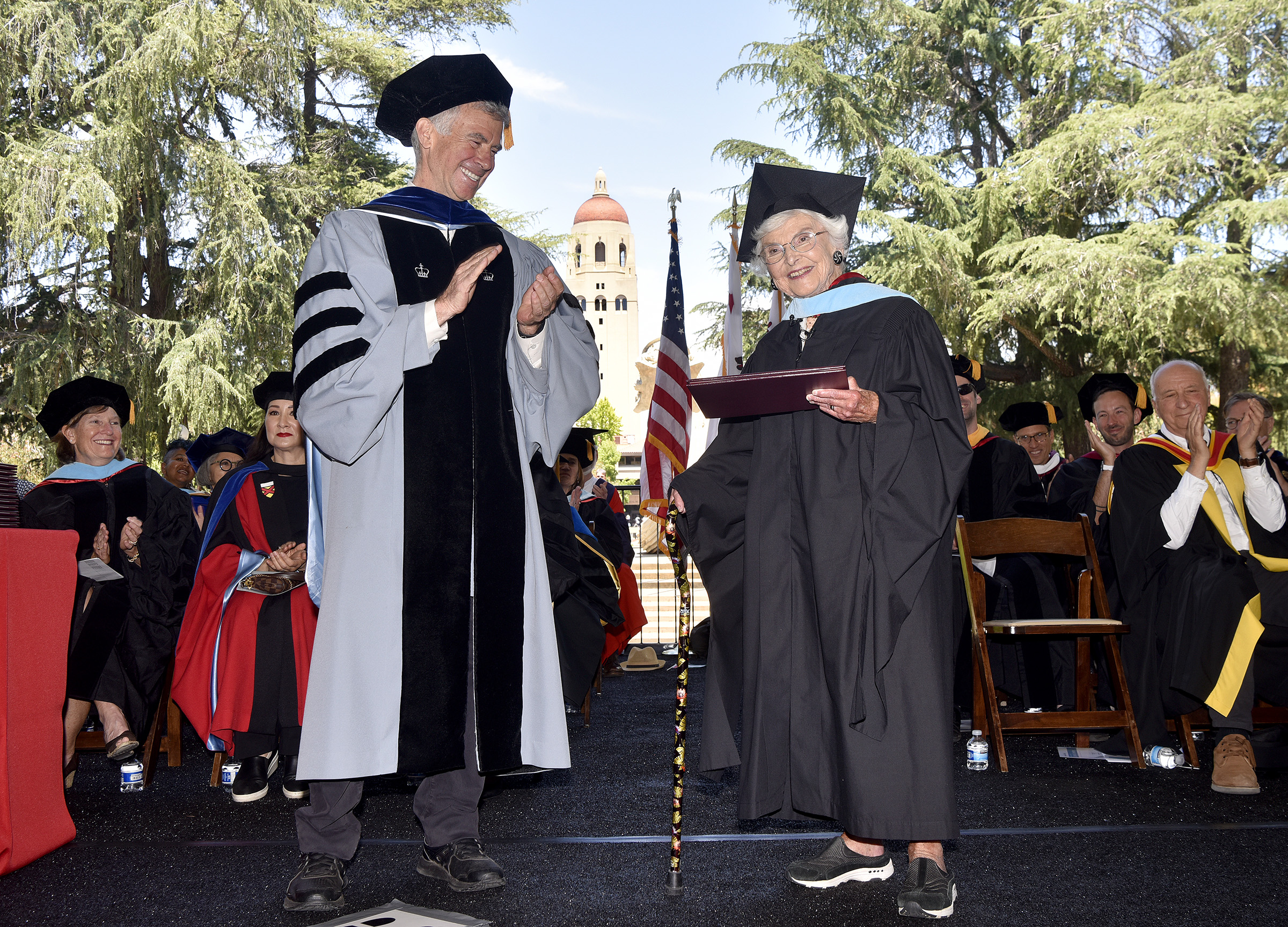
Virginia Hislop (right) accepts her diploma for her master of arts in education at the GSE’s 2024 commencement ceremony from Dean Dan Schwartz. She collects her degree after more than 80 years doing education work in schools and on school boards in Yakima, Washington. (Photo: Charles Russo)
Family ties to Stanford
In many ways, Hislop’s work in education after leaving Stanford began with her children.
When her daughter Anne started first grade in Washington, Hislop advocated on her behalf so that she could take advanced English, rather than a home economics course being suggested by the school.
“I felt that she could learn to cook at home and it was more important that she learn more academic skills at school,” said Hislop, whose daughter Anne Hislop Jensen MA ’68 and son-in-law Doug Jensen, MA ’68, also graduated from the GSE.
After that first encounter, Hislop was moved to join the school board to have more of a say in what children were being taught, to help set them up for success.
“I felt that all the kids should have an opportunity to develop their potential as best they could, and that everybody should have a crack at higher education if they wanted,” said Hislop, who stayed on the school board for 13 years before moving her involvement to the city, county and state level in Washington state.
Some of her roles included chairing the Yakima School Board of Directors; becoming a founding member of the board of directors for Yakima Community College, and helping to start Heritage University in Toppenish, Washington, where she served on the board for 20 years.
“I’ve been doing this work for years and it’s nice to be recognized with this degree,” she said.
Leadership and longevity in learning
Nowadays, Hislop spends most of her time doing community work, reading, socializing and working in her garden — a routine she says has kept her sharp.
“The biggest lesson I’ve taken from her is that you never really stop learning,” said Doug Jensen, “She’s a voracious reader, and at 105 she’s still actively moving and shaking. No moss grows under her feet.”
Looking back on her career, Hislop credits her time at Stanford and the things she’s learned from community partners along the way for her ability to impact students.
“I think I did good things for our local school system and I helped broaden it out,” she said. “For me, this degree is an appreciation of the many years I’ve put in working for the schools in the Yakima area and on different boards.”
At the GSE Diploma ceremony, Schwartz concurred, saying Hislop “led a life of tremendous educational accomplishment.” Her fellow graduates and their families gave her a standing ovation.
When Hislop rose from her seat, donned in cap and gown, to walk across the stage and receive her master’s hood, the applause roared once again. She greeted Schwartz on stage and was handed her diploma. She smiled for the cameras. Her grandkids and great-grandkids waved and cheered.
“My goodness,” Hislop said. “I’ve waited a long time for this.”
More GSE News

⟵ Go to all GSE News
Get the Educator
Subscribe to our monthly newsletter.
Stanford Graduate School of Education
482 Galvez Mall Stanford, CA 94305-3096 Tel: (650) 723-2109
- Contact Admissions
- GSE Leadership
- Site Feedback
- Web Accessibility
- Career Resources
- Faculty Open Positions
- Explore Courses
- Academic Calendar
- Office of the Registrar
- Cubberley Library
- StanfordWho
- StanfordYou
Improving lives through learning

- Stanford Home
- Maps & Directions
- Search Stanford
- Emergency Info
- Terms of Use
- Non-Discrimination
- Accessibility
© Stanford University , Stanford , California 94305 .

IMAGES
VIDEO
COMMENTS
With professional thesis translation services, Protranslate is here to help. Your Master's degree is guaranteed with Protranslate's exceptional Master thesis translation.For further inquiries and questions about thesis translation fee you can contact customer service whenever you want. Writing a thesis in your mother-tongue is challenging ...
Diploma translation requires precision, attention to detail, and a deep understanding of the educational systems and terminologies in both the source and target languages. A qualified translator with expertise in academic translation will ensure that your diploma is translated in a way that accurately reflects your achievements and maintains ...
If so, the next question is when and how to go about translating articles into English. There are three main options: Thesis Editing: write it in English, then get it edited. If you have good English, you might decide to write your thesis or dissertation in English from the outset. If your supervisor and department give their blessing, this ...
Diplomas: Similar to degree certificates, a diploma is often given after finishing high school, a vocational training program, or a specific course at a college or university. Sometimes jobs or schools in other countries ask to see this in their language. ... Research Papers or Thesis: If you did a big project or research and you want to share ...
We can even mail or email the translation directly to your college or evaluation agency. start now. In a rush? No problem! We offer expedited services: Priority: 24 hours or 2x faster - from $39.95/page or $0.08/word. Express: 12 hours or 3x faster - from $65.95/page or $0.11/word.
When it comes to cost per word, prices vary from $0.08 to $0.50/word. The cost per page usually ranges from $20 to $130 per page. RushTranslate provides degree translation services in over 60 languages starting at $0.10 per word for standard translations and $24.95 per page for certified translations.
Linguation will always allocate a native speaker with the appropriate knowledge of specific subject matter to assist in the process of your academic translation. Moreover, our translators are well-versed with new ideas and current research findings in their relevant discipline. At Linguation we go one step further to ensure a flawless translation.
Academic documents come in many different styles and subjects. Whether you are in need of a scientific translation, thesis translation, essay translation, research paper translation, professional psychology translation, abstract translation, or academic survey translation, Protranslate has got you covered.On our platform, you can find experts to translate your academic documents into over 120 ...
A translation of your master's thesis might be required for it to be published in a book or journal. Moreover, for your research to be accessible to a wider audience, a translation of your master's thesis / dissertation into a more frequently used language, such as English, might be beneficial. Linguation can provide high-quality ...
DocTranslator.com - is an automatic document translation tool that converts any PDF, Word or Excel file into over 100 languages. Built with simplicity in mind, this tool offers the lowest prices on Earth starting as low as $0.001/word. That's 60 times cheaper than the most competitive rate offered ...
Official Baccalaureate diploma translation is a sensitive process and it should be handled by professional baccalaureate translation offices only. In case of an error, the entire document can go to waste. ... Providing online professional translation, Protranslate is "the" option to trust with your baccalaureate thesis translation. With its ...
Google's service, offered free of charge, instantly translates words, phrases, and web pages between English and over 100 other languages.
Right-to-Left (RTL) Language Support. As part of our mission to create a world where everyone can belong, we help connect more than 300 million Arabic, and Hebrew-speakers with support for right-to-left (RTL) languages - including enhanced support of cursive scripts, rendering of complex text layouts, document layout mirroring, and text alignment for bidirectional languages.
4. If you have access to the digital copies, then dump the entire thing into Google translate so you can skim read it. Having done that, it would be a good idea to find a native speaker and get them to check the translation of specific sections that seem relevant on the basis of the automated translations. I wouldn't suggest asking a native ...
Faculty members who teach in the online MS in Translation & Interpreting program share their deep expertise with students from around the world. The comprehensive online program focuses on the specialized skills required for translation and interpreting, while thesis advisers provide guidance to students on the subtle nuances of Spanish-to-English translation, Chinese-to-English translation ...
Linguation provides high-quality translation of your Bachelor's thesis. You can rely on Linguation to provide top-quality translation services for all your Bachelor's thesis translation needs. At Linguation we recognise the immense amount of time and effort that goes into a Bachelor's thesis. It is vital that any translation of your ...
Translate Diploma thesis. See Spanish-English translations with audio pronunciations, examples, and word-by-word explanations. Learn Spanish. Translation. ... SpanishDictionary.com is the world's most popular Spanish-English dictionary, translation, and learning website. Ver en español en inglés.com. FEATURES.
A bachelor's thesis is often 40-60 pages long, a diploma thesis and a master's thesis usually 60-100. The required submission for a doctorate is called a Dissertation or Doktorarbeit . The submission for a Habilitation , which is an academic qualification, not an academic degree, is called Habilitationsschrift , not Habilitationsarbeit .
Areas: Language in the media, language and law, language and society. Topics: Representation of social groups, interaction and interactivity,discourse coherence in spoken and written language, discourse patterns in media communication, modern genres of English, diachronic genre analysis (historical pragmatics) doc. Mgr. Tomáš Kačer, Ph.D.
Program structure. The Graduate Diploma in Translation and Interpreting involves completing eight courses: a core discipline course, two practical courses (one in interpreting, one in translation) and five prescribed electives. You can tailor the practical courses and prescribed electives toward your career goals and interests.
Look up the English to German translation of diploma thesis in the PONS online dictionary. Includes free vocabulary trainer, verb tables and pronunciation function.
The application for translation of the thesis topic must be completed by the Supervisor at the stage of entering the thesis into the GAKKO system. ... Due to the introduction of new diploma prints, diploma photos are not required from the 2020/2021 summer semester defenses. When picking up your diploma, please have your ID card ready for return ...
The PGDE is a diploma, and there might be an extended bit of writing - perhaps called a long essay, or perhaps a dissertation, or perhaps a thesis. This person might then take an MA course which also involves a dissertation or a thesis. The diploma thesis would be the one written for the diploma, and the Master's thesis for the MA.
Public Comment on First Draft of Diploma Rule Open Through July 30. Thursday, June 27, 2024. INDIANAPOLIS - Indiana leaders continue to gather feedback from stakeholders to make the proposed new high school diploma requirements as flexible, relevant and rigorous as possible for Indiana students. The current proposal, originally presented in March and June, represents a first draft of what the ...
At the GSE Diploma ceremony, Schwartz concurred, saying Hislop "led a life of tremendous educational accomplishment." Her fellow graduates and their families gave her a standing ovation. When Hislop rose from her seat, donned in cap and gown, to walk across the stage and receive her master's hood, the applause roared once again.